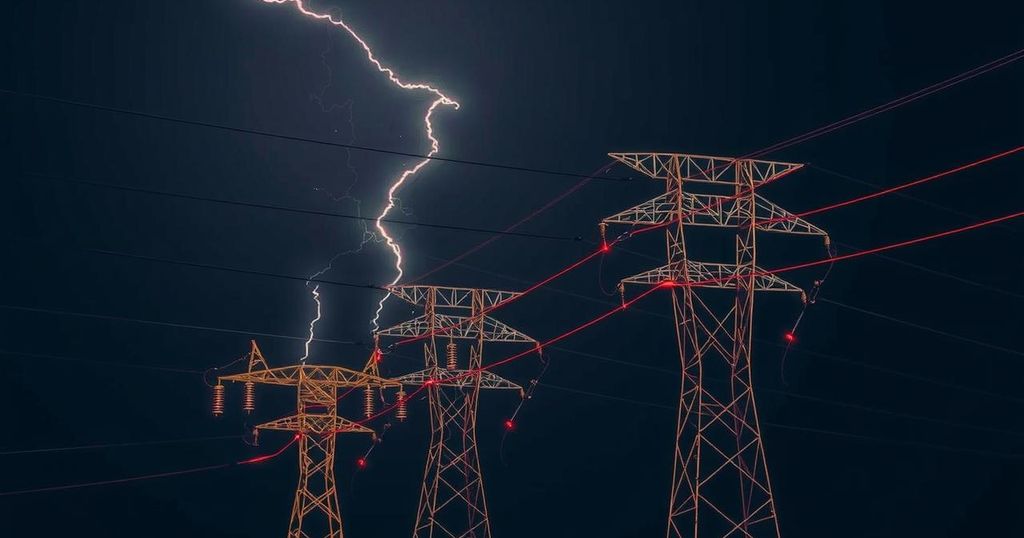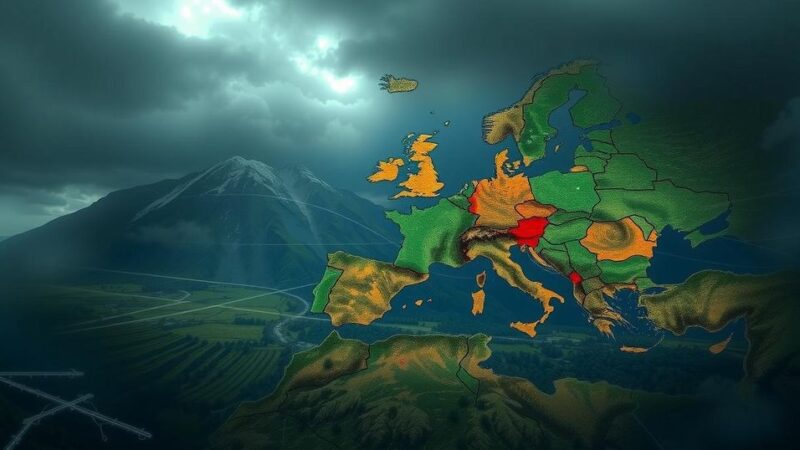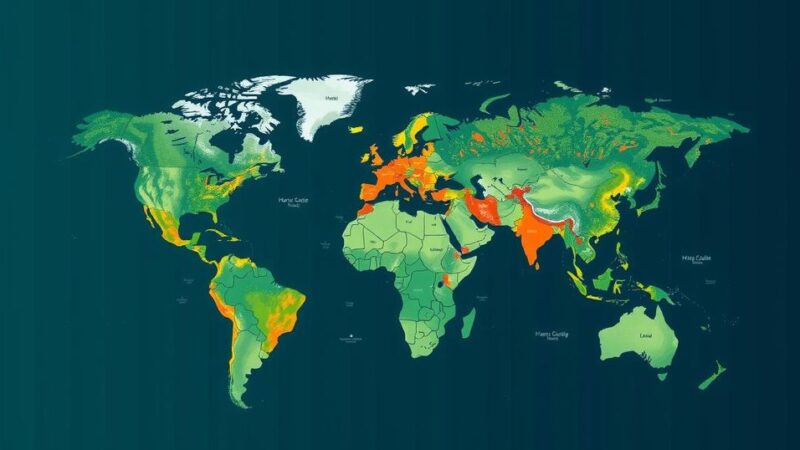On Sunday night, Zimbabwe and Zambia faced widespread blackouts due to a surge in power lines connected to South Africa’s Eskom. The outages began minutes apart, affecting both countries almost simultaneously. Restoration efforts commenced rapidly, with significant progress reported by early Monday morning. Both nations continue to struggle with chronic power generation issues exacerbated by reliance on aging infrastructure and low water levels at hydroelectric plants.
On Sunday night, both Zimbabwe and Zambia experienced simultaneous nationwide blackouts, originating from a power surge along the transmission lines linked to South Africa’s Eskom. The outages struck swiftly, with Zambia losing power at 8:15 PM and Zimbabwe following just ten minutes later at 8:25 PM. ZESA, the authority responsible for electricity supply in Zimbabwe, characterized the incident as a “system disturbance” that resulted in the nationwide blackout, while Zambia’s ZESCO similarly attributed the disruption to a “power system disturbance” affecting the entire nation.
By the early hours of Monday, ZESA reported that efforts to restore power were ongoing, stating that significant progress had been achieved. The authority announced that most load centers across the country had been energized by 3 AM, bringing relief to the citizens after the abrupt loss of electricity. Eyewitness accounts noted flickering lights prior to the outages, suggesting instability prior to the complete failure.
Both countries are currently grappling with chronic power generation issues, heavily reliant on the Kariba hydroelectric plant, which has seen a decline in output due to diminished water levels. Zimbabwe’s aging thermal power facilities frequently suffer breakdowns, leading to power cuts of up to 18 hours each day. Zambia faces a similar crisis, with continual outages impacting households and businesses alike. This recent blackout highlights the precarious status of the power infrastructure in the region, emphasizing the urgent need for improved grid resilience and diversification of energy sources to address the ongoing energy crises.
The nationwide blackouts affecting Zimbabwe and Zambia are rooted in systemic challenges within the southern African power infrastructure. Both countries depend significantly on electricity imported from South Africa’s Eskom, and any disturbance in this supply line can lead to widespread outages. Currently, the region faces severe power generation issues, exacerbated by reliance on aging infrastructure and low water levels at hydroelectric facilities. Both nations emphasize the critical need for strategic improvements to their power systems to mitigate the risk of future disruptions.
In conclusion, the simultaneous blackouts in Zimbabwe and Zambia illustrate the vulnerabilities of their power networks, which are heavily dependent on interconnected systems and external sources. With ongoing challenges in energy production and an urgent need for infrastructure improvements, both nations must prioritize strategies aimed at enhancing reliability and diversifying energy generation. The shared experience of these outages underscores the fragility of their power systems and the importance of collaborative solutions.
Original Source: bulawayo24.com






